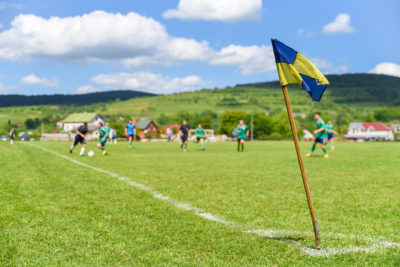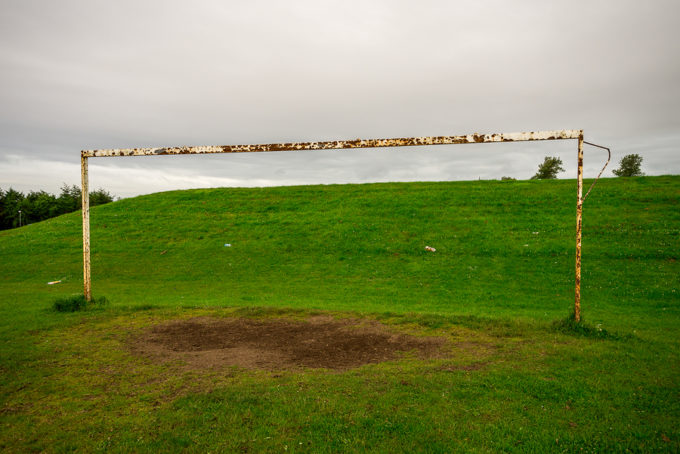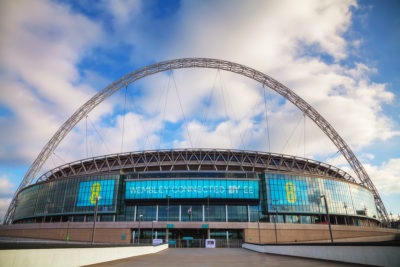 For as long as I’ve been interested in football, the problem of how to best help the grassroots side of the game has plagued the Football Association and big clubs at the top of the game. One of the ideas that the FA has proposed is the notion of a sort of ‘levy’ on gambling companies that would be paid into grassroots football on a yearly basis in order to help the game develop and grow. It is similar in notion and scope to the Horserace Betting Levy that is paid by UK operators.
For as long as I’ve been interested in football, the problem of how to best help the grassroots side of the game has plagued the Football Association and big clubs at the top of the game. One of the ideas that the FA has proposed is the notion of a sort of ‘levy’ on gambling companies that would be paid into grassroots football on a yearly basis in order to help the game develop and grow. It is similar in notion and scope to the Horserace Betting Levy that is paid by UK operators.
That sees 10% of gambling operators’ net wins paid back into the horse racing industry thanks to the Betting, Gaming and Lotteries Act of 1963 and the Horserace Betting Levy Acts of 1969 and 1981. The idea of something similar for football that was proposed by the Football Association has been rejected wholesale by the gambling industry, however. The idea was put forward by the Chief Executive of the FA, Martin Glenn, in order to aid in the the governing body’s initiative known as ‘Football Foundation’.
What Is Grassroots Football?
The first thing that it’s important to look at is what exactly grassroots football is. I don’t want to teach grandma to suck eggs with this, but at the same time there are likely to be plenty of people out there who have a passing interest in the sport and no more who might not understand the concept. If you’re going to read a piece about money being diverted into the grassroots side of the game then it’s important to understand what I’m talking about.
In short, the grassroots movement is one that looks to encourage the development of football at a local level around the country. We all sit and watch football being played in stadiums around the world or on TV, but what happens when we’ve been inspired by what we’ve seen and decide to go and play a game of football locally to where we live? You can head to your closest park but in most places around the country you’ll find that pitches are in a terrible state, either courtesy of poorly maintained turf or else pitches that are based on a slope or somewhere that the grass cuts up easily.

The problems that face grassroots football aren’t limited to the state of the pitches, either. Whether it be coaches that are able to train the teams or referees who can take charge of the matches, there’s less money involved in the lower end of the sport nowadays and so fewer and fewer people are able to get involved. To an extent, this is as much to do with the popularity of the Premier League as it is to do with the lack of money involved at the lower levels of the game, but it’s believed by many that the future of the English top-flight will be limited if something isn’t done to encourage more people to get involved at an early stage of proceedings.
The FA’s Plan
Now that we have a better idea of what grassroots football is, it’s worth having a look at what the Football Association’s plan was as outlined by Martin Glenn in an interview with the Daily Telegraph. Glenn told the newspaper that his dream was for everyone who wanted to play football to be within a ‘short drive’ of a football pitch in the near future. He based his vision on his time in the two of Verden in West Germany in the 1980s when he saw that investment in the game ensured excellent facilities for players of all ages.
Given that nine Premier League teams and seventeen in the Championship have their shirts sponsored by gambling companies, Glenn feels it would be appropriate for them to offer what he referred to as a ‘fair return’ to the sport. He said that the betting companies take advantage of football’s ‘intellectual property’ in order to benefit themselves and wondered ‘why wouldn’t a small percentage’ of the money be punt back into the ‘thing that made it possible in the first place’. He hoped that gambling companies could be persuaded to pay a small percentage of their net win into the Football Foundation, matching the £64 million being paid in by the FA, the Premier League and and the government.
Wembley’s Place In This

Wembley Stadium (Credit: photo.ua / bigstock)
In discussing this topic it’s also important to make mention of Wembley Stadium and the attempted sale of it that fell through recently. The Football Association attempted to sell the national stadium to the American billionaire Shahid Khan but he pulled out of the purchase in October, leaving the FA with a shortfall of funds to put into the Football Foundation initiative.
Whichever way you look at it, there is a remarkable lack of funding being put into the grassroots of the game at a time when more money than ever before is floating around at the top of the sport. After all, the Premier League has entered into the final year of its three year, £5 billion television deal. They would point to the doubling of the money that they put into grassroots that they agreed to in 2016 and question the government’s cutting of funding to local authorities as being part of the problem.
Why The Gambling Industry Has Said ‘No’
The Chief Executive of the Remote Gambling Association, Clive Hawkswood, summed up the feelings of most bookmakers when he said that football was an ‘extremely wealthy sport’ and that it wasn’t the bookies’ responsibility to support it. He scoffed at the notion that bookmakers take advantage of football’s intellectual property, pointing out that the betting industry already pays for the use of it through things such as contractual arrangements with Football DataCo.
Betting chiefs are also quick to point out that they do put a significant amount of money into football courtesy of the commercial partnerships that they’ve agreed to when sponsoring clubs and advertising through them. Hawkswood pointed out that there’s nothing stopping the football authorities using that money to support grassroots football, should they wish to.
Taking Money Away From Other Areas
The Chairman of The Senet Group, Gillian Wilmot, is concerned that a move to get the betting industry to pay a levy towards football might see money taken away from other areas that are arguably more important. The Senet Group is an independent body whose responsibility includes promoting responsible gambling for betting companies and Wilmot’s worry is that a levy paid to help grassroots football might see gambling companies stop paying the voluntary contribution that they currently put forward for the prevention of gambling addiction and the support of those already addicted.
She said, “That money needs to go to prevention of any gambling addiction and treatment of those who become addicted, it can’t go anywhere else. That must go to preventing problem gambling and also treating those who become addicted, and that’s only right”. The industry has admitted recently that it does have some concerns over the way football betting is advertised, with the Chief Executive of the parent company of Ladbrokes and Coral, Kenny Alexander, calling for a blanket ban on betting adverts during live matches that occur before the watershed. In an industry that takes around £1.4 billion from football, that could see a dramatic reduction in net wins.



